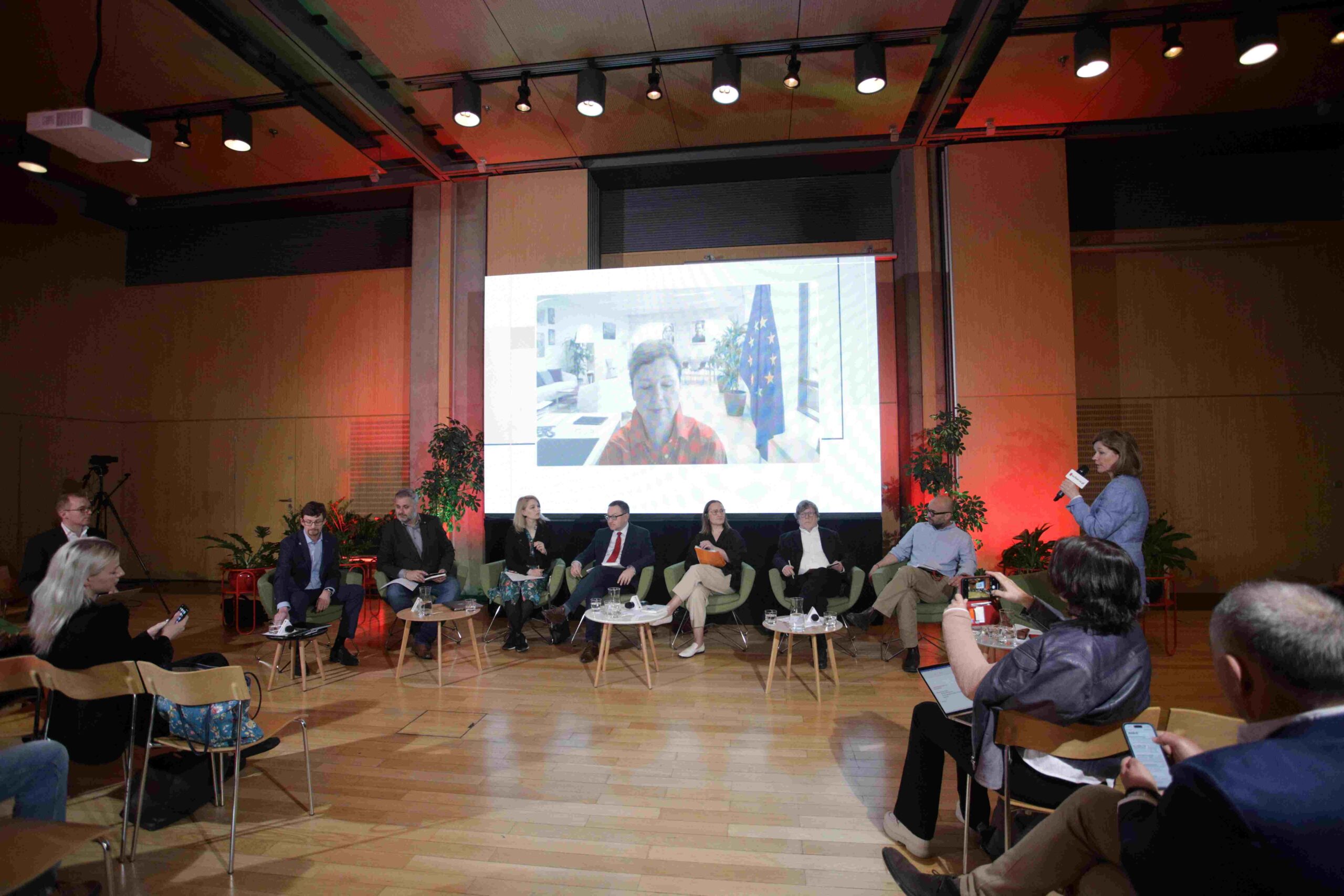24 Apr 2023

The Committee for Editorial Independence, supported by Reporters Without Borders and the Bakala Foundation, unveiled new data on media freedom attitudes in Poland, Czech Republic, Slovakia, and Hungary. The press conference with a panel debate took place at Gazeta Wyborcza‘s offices in Warsaw on April 24, 2023.
The complete survey results and a video recording from the whole debate are available at www.mediafreedompoll.com.
A brief poll presentation was followed by a panel discussion featuring Věra Jourová, Tessa Szyszkowitz, Václav Štětka, Bartosz Wieliński, Erhard Stackl, Dorota Nygren, Veronika Munk, Martin Ehl and Václav Pecha.
The survey comes at a critical time, as the European Commission builds political consensus around a new European Media Freedom Act that seeks to address many of the issues reflected in public concerns.
4 023 people were polled across Poland, Czechia, Slovakia, and Hungary in March 2023, using both phone and online interviews to ensure a representative measure of opinion. The study reveals that concerns about media freedom have significantly risen in Slovakia and Poland, with 71% of respondents in Poland expressing concern, an increase of 8 percentage points compared to last year.
The vast majority of people acknowledge the importance of independent media. The negative impacts of media owners and governments influencing journalistic content have become more apparent to the public.
In Poland and Hungary, the government is perceived as the biggest threat to media freedom. In contrast, media owners and business interests are seen as the primary threat in the Czech Republic and Slovakia. Independence from owners or business interests is highly valued, although slightly less than political independence, with 87% of respondents in Poland emphasising its importance.
Strong support exists for media independence from the government, unlinking media from political parties, and ensuring truthful, factually accurate content. The public also highly supports transparency in media ownership and disclosing conflicts of interest between owners and content.
The survey indicates that people are in favour of the state strengthening legislation to safeguard media freedom and independence. They also support the European Union imposing penalties or sanctions on governments that interfere with media freedom.
The need for digital platforms to prioritise trustworthy sources over less reliable news sources and to prevent the spread of hate speech and disinformation is widely agreed upon. Media diversity is perceived as relatively higher in the Czech Republic and Poland, while it is lower in Hungary.
Dr. Tessa Szyszkowitz, Chair of the Committee for Editorial Independence said: “As the European Commission works towards gaining EU-wide consensus on the need for a European Media Freedom Act, these findings show the public are ahead of the politicians in demanding action to protect journalistic values and independence.”